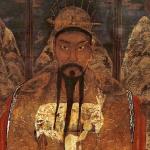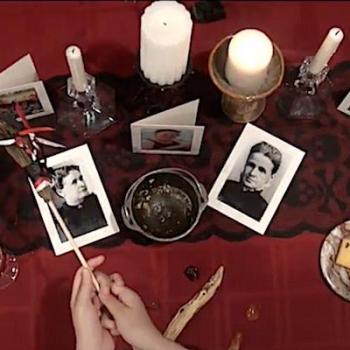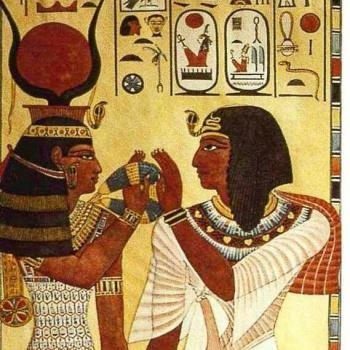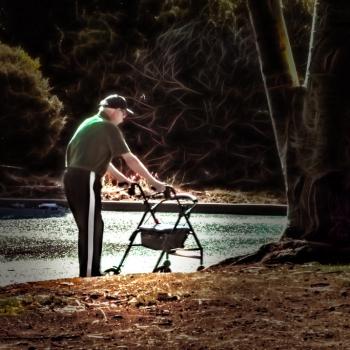
Winter Solstice is traditionally a time of celebration. For me, Joy is the quality that I most resonate with when I embrace this time of year. In our earth-based traditions we especially claim this season because so many of the rituals, like decorating an evergreen, have obvious pagan roots.
This season, however, is a tricky one for many people, including me. With so much strife, violence, war and difficulty in the world, does Joy really have a place? What about sadness, loneliness, lack of resources, fear of the future? Are we being insensitive if we feel Joy when others are suffering? Are we being irresponsible when we put aside our personal challenges to feel joyful? These are important sentiments we all are confronting. Yet, I have found that Joy is critical to our continuing to cope realistically with these painful realities.
The lighting of the National Christmas Tree on December 3rd was especially relevant to this concern about the relationship of social conscience and Joy. But first, a little background.
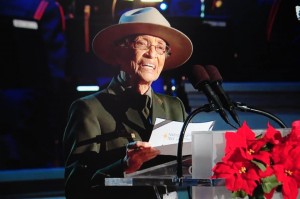 I had this lesson about Joy reinforced by my friendship with an African-American, mixed raced woman, Betty Reid Soskin, whom I met thirty years ago at the Berkeley Fellowship of Unitarian Universalists. Betty is now 94 years old and the oldest National Park ranger still working. On December 3rd she had the unique honor of introducing President Barak Obama at the annual Christmas Tree lighting in Washington D.C. Nothing Else Tops This
I had this lesson about Joy reinforced by my friendship with an African-American, mixed raced woman, Betty Reid Soskin, whom I met thirty years ago at the Berkeley Fellowship of Unitarian Universalists. Betty is now 94 years old and the oldest National Park ranger still working. On December 3rd she had the unique honor of introducing President Barak Obama at the annual Christmas Tree lighting in Washington D.C. Nothing Else Tops This
During the ceremony it was noted that the 400-plus National Parks are treasures held in common for all and available to all for enjoyment. This part of our heritage—earth-honoring, diversity embracing, and protecting the Public Commons especially resonates with Pagan and Unitarian Universalist values.
In the late 1980s, Betty collaborated with me on a session of Rise Up & Call Her Name: A Woman-honoring Journey into Earth-based Spiritualities that featured her African-American music store which she owned and operated for many years. Betty was actively involved in Unitarian Universalism over decades, including serving on the Board of Trustees of Starr King School for the Ministry.

 Betty became a National Park employee when she was 85 years old. She confronted ageism by progressing from an entry level position to now being the most famous ranger. She was instrumental in shaping the Rosie the Riveter/World War II Home Front National Historical Park in Richmond California. She ensured the complete history was told, successfully advocating for the full disclosure of the racism of that period. This Park is the story of an important era in the history of women’s participation, and thanks to Betty’s advocacy, all women are represented.
Betty became a National Park employee when she was 85 years old. She confronted ageism by progressing from an entry level position to now being the most famous ranger. She was instrumental in shaping the Rosie the Riveter/World War II Home Front National Historical Park in Richmond California. She ensured the complete history was told, successfully advocating for the full disclosure of the racism of that period. This Park is the story of an important era in the history of women’s participation, and thanks to Betty’s advocacy, all women are represented.
She delivers weekly interpretive commentaries about the Park, weaving her own personal herstory into the more objective facts. As a park ranger, Betty points out that our nation is both a place of environmental beauty and of social history that teaches much about human potential. The stories of Americans, past and present, challenge us to rise up in the face of injustice and do what we can from where we find ourselves positioned.
Betty is a lifelong passionate, grassroots educator about the Black experience. In Rise Up, she shares the story of her own great grandmother who was a slave. Betty explains: “Since my great-grandmother, Leontine, lived to be 102, (1846-1948). I was privileged to have actually known my slave ancestor. I was a 27 year-old married woman and mother of two when she died three years after the end of WWII.” She carried a picture of her grandmother in her pocket when she introduced President Obama. It was quite a moment, her standing in front of the White House built by slaves. The President acknowledged the contributions of her grandmother during his comments, genuinely impressed by Betty’s dedication to sharing her life story.
Betty has received many honors throughout her life not because she was formally highly educated. In fact she is largely self-taught, and extremely well informed and passionate about world affairs, social justice and personal development. Being a part of the National Park Service in a park which honors both diversity and women has been a fitting last chapter in Betty’s life filled with activism.
As an African American and a woman she has dealt with both stunning personal emotional challenges and dazzling successes in her social relations. She has taught me that we can learn a great deal from one another’s lives. Describing both of us as bridge people, she and I early agreed that keeping the conversations going among the many genders and ethnic groups renders insights which frequently provide meaningful solutions to social strife.
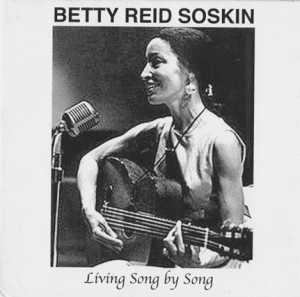 In her younger years she was a folk singer. For her 90th birthday, Betty performed a benefit concert of her music and issued a CD of pieces she had composed. These songs comprise a poignant review of her life in the 1960s and 70s. These beautifully sung lyrics interweave her personal responses with the actualities of the social upheavals of the times. She explains the changes in her self-image. In an earlier period she identified as primarily Black. Later she honored her mixed ethnic and racial heritage in a song entitled “All of Me.”
In her younger years she was a folk singer. For her 90th birthday, Betty performed a benefit concert of her music and issued a CD of pieces she had composed. These songs comprise a poignant review of her life in the 1960s and 70s. These beautifully sung lyrics interweave her personal responses with the actualities of the social upheavals of the times. She explains the changes in her self-image. In an earlier period she identified as primarily Black. Later she honored her mixed ethnic and racial heritage in a song entitled “All of Me.”
Betty started a personal blog for family and friends in 2003 before she was a park ranger. She continues to write frequently, dealing with contemporary issues and her personal trials and triumphs. These columns are lyrical, clearly stated and visually illustrated, attracting thousands of readers. Sample these gems at: Betty’s Blog
And, Betty is one of the most Joyous people I have known. This does not mean that life has been easy for her or that she has never experienced deep melancholy or sadness over personal difficulties or the inequities visited on so many innocent people. Quite the contrary. What is important is that she has kept going through tribulations, both personal and social. In many ways, this is also a central contribution of the African American population to our National Character. To learn more about her diverse and fascinating life, see: Betty’s Website
Respecting the worth and dignity of each person, then, gives us moral fortitude in these times of great challenge. This core value has a self-care component as well. When we appreciate our own gifts and make the best of our unique opportunities, we allow the fullness of life to be expressed through us, wherever we find ourselves. In this process, the ability to feel Joy is the critical component that opens our hearts and draws out the strength in others.



